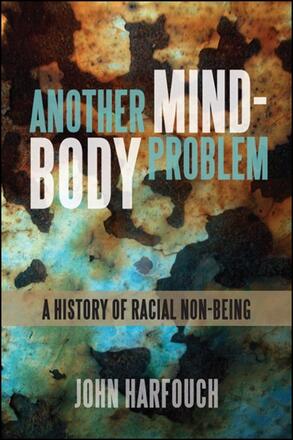
Another Mind-Body Problem
A History of Racial Non-being
Alternative formats available from:
Demonstrates the profound overlap of philosophy’s mind-body problem and various racist doctrines found in thinkers ranging from Descartes to Kant.
Description
The mind-body problem in philosophy is typically understood as a discourse concerning the relation of mental states to physical states, and the experience of sensation. On this level it seems to transcend issues of race and racism, but Another Mind-Body Problem demonstrates that racial distinctions have been an integral part of the discourse since the Modern period in philosophy. Reading figures such as Descartes, Leibniz, and Kant in their historical contexts, John Harfouch uncovers discussions of mind and body that engaged closely with philosophical and scientific notions of race in metaphysics and the philosophy of mind, in particular in understanding how the mind unites with the body at birth and is then passed on through sexual reproduction. Kant argued that a person's exterior body and interior psyche are bound together, that non-White people lacked reason, and that this lack of reason was carried on through reproduction such that non-Whites were an example of a union of mind and body without full being. Charting the development of this phenomenon from sixteenth-century medical literature to modern-day race discourse, Harfouch argues for new understandings of Descartes's mind-body problem, Fanon's experience of being 'not-yet human,' and the place of racism in relation to one of philosophy's most enduring and canonical problems.
John Harfouch is Assistant Professor of Philosophy at the University of Alabama–Huntsville and the coeditor (with Leonard Lawlor) of The Cambridge Foucault Lexicon.
Reviews
"Though he does not use the term, Harfouch successfully makes the case that philosophy's white (male) domination and resultant hermeneutical marginalization harms the field. To heal what European hubris has wrought, we must split the field wide open. Harfouch's book offers us a thread through racism's maze of obfuscation and this reviewer recommends it highly. " — Susan Peppers-Bates, Journal of the History of Philosophy
"…Harfouch has provided an interesting contribution to the history of philosophy and perhaps current topics in philosophy of race … Another Mind-Body Problem will be of interest to feminist scholars engaged in critiques of the legacy of the Cartesian mind-body problem. " — Hypatia Reviews Online
"The book's most obvious audience includes Descartes scholars, historians of philosophy more generally, contemporary philosophers of mind, and critical race theorists. However, the consequences of Harfouch's work touch the entire field of academic philosophy. Indeed, I think it may be a must-read for all of us, especially those who claim a commitment to making philosophy more diverse. " — Julie Walsh, Notre Dame Philosophical Reviews
"Harfouch has written an important book on the intersection of race and the Western construction of the mind-body problem … This book is a significant resource for theorists dealing with race and decolonization issues, but it is more significant for the critique of philosophy itself and the continued teaching of mind-body issues. Readers will need some knowledge of philosophy, but the volume is in general accessible. It should be required reading for scholars of philosophy. Harfouch establishes a logically strong argument and makes a unique contribution to the field. " — CHOICE